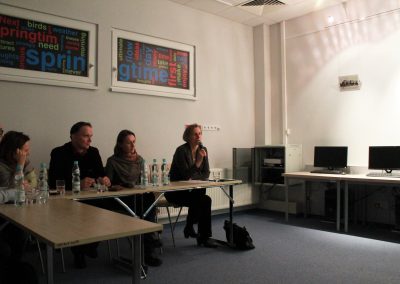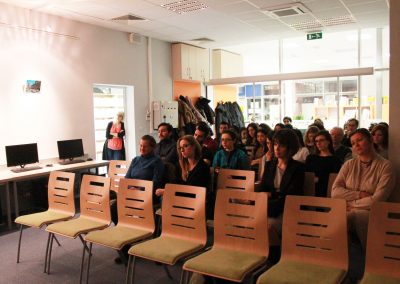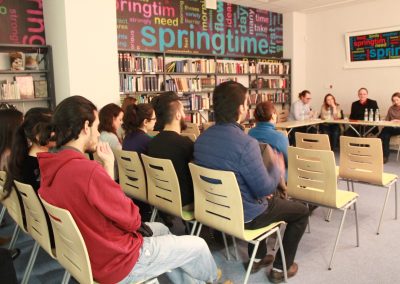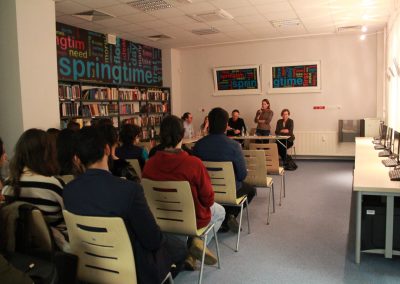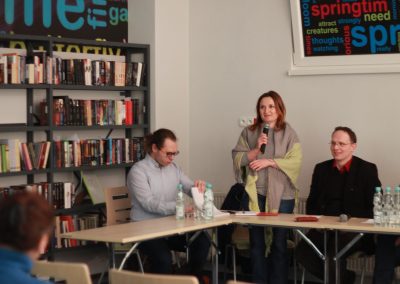On Wednesday we met in the Municipal Library Fil. 4 to participate in the debate entitled Gender ideology(ies): Man and woman – different by nature, inequal by society? We tried to find the answer to this question with our four guests: sociologists Borys Cymbrowski and Anna Czerner, philologist Katarzyna Molek-Kozakowska and biologist Elżbieta Pogoda.
We were aware that for most people the term gender is unfamiliar or even unfriendly, especially when someone is not a philologist or a social researcher, so we started with the basic questions: what gender is, how it exists in our respective fields of studies, and if there exists gender ideology. We can say that gender in general is about social consequences of being men, women or the others, because in the opinion of Elżbieta Pogoda even from a biological point of view there are more than only two sexes. And there is no evidence that one sex has an advantage over another.
In Polish media we encounter some false beliefs about the meaning of the word “gender”. But as Borys Cymbrowski mentioned it is a problem of confusion of nature with culture, because in the Polish language we have only one word (płeć) for gender and for sex. So some commentators confuse biological meaning with the cultural one. They accuse gender scholars of promoting a dangerous ideology which tries to convince people to choose their sex. As Anna Czerner said, the truth is that in the social sciences gender was a neutral category to analyse the relations between people in society, but unfortunately some institutions and politicians took one of the least popular topics in gender studies and used it as a basis to create and apply gender ideology as a political tool.
After that we focused mostly on language aspects within gender issues. Katarzyna Molek-Kozakowska indicated that for her it was easier to introduce herself in English than in Polish, because in Polish most names of academic professions have only a masculine gender, or even if it has a female gender, masculine forms sound more serious and more prestigious. But language is not a constant phenomenon – it is changing all the time. Twenty years ago we considered some female forms of words as strange, but today we take them for granted. We concluded that it is important to include more women-related forms to language, and it is one of the main catalysts of social changes in the public sphere.
We are really glad we could discuss it with you and with the citizens of Opole. We would like to thank you all for your presence and participation, and we hope to see you soon during another discussion. The aim of the whole debate was to clarify a little the problem of gender, but two hours is a short time when you are discussing such an important and complicated topic – so we treat this meeting only as a start. The debate is still open.
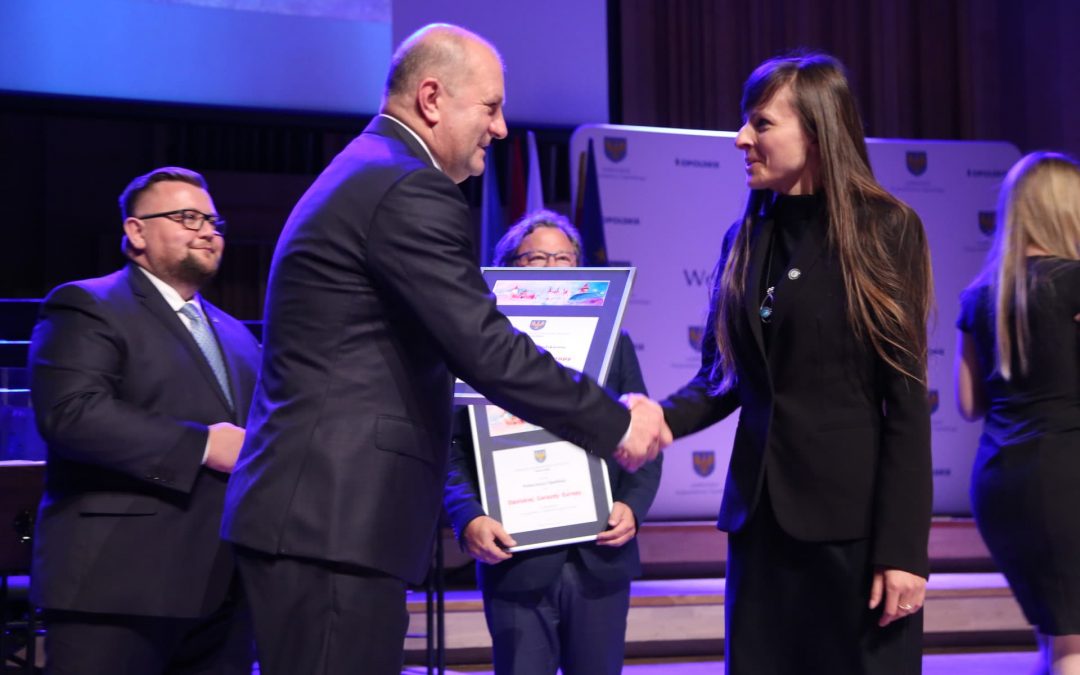
Opole European Star for the UO
Active international cooperation of the UO highly appreciated by the Board of Opole Voivodeship On 24th April 2019, a special gala took place in the Opole Concert Hall, during which the competition ‘Partnership without borders - the Opole region 15 years in the...
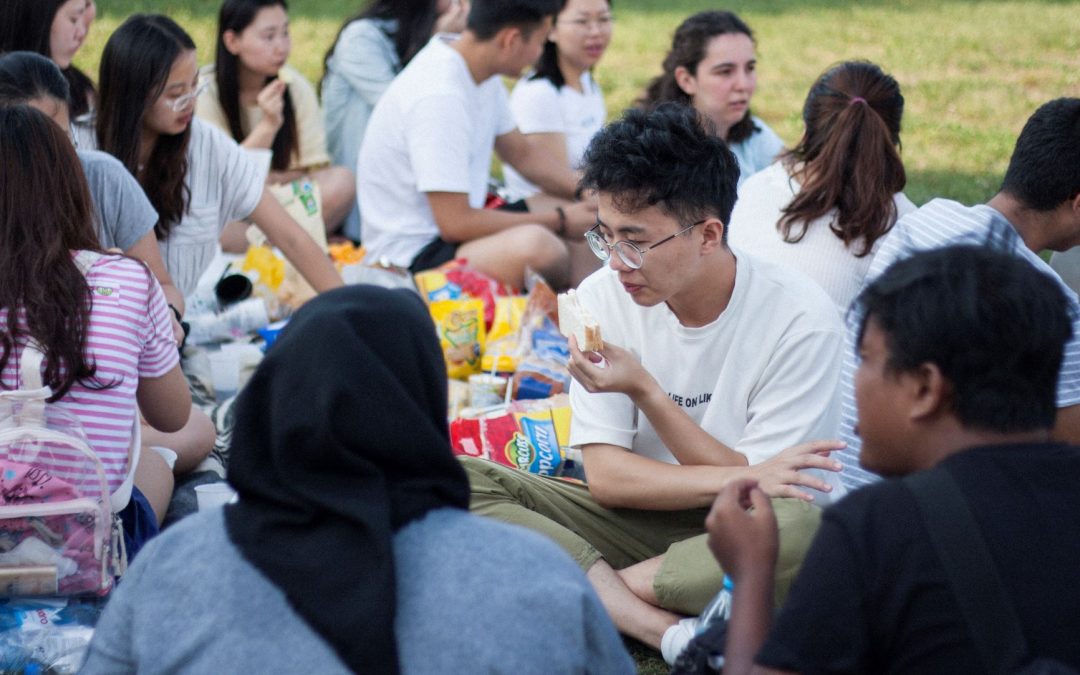
International Weekends
The programme is co-financed by the European Social Fund in the framework of Knowledge Education Development Operational Programme, non-competition project Increasing competencies of academic staff and institutions’ potential to receive people from abroad – Welcome...
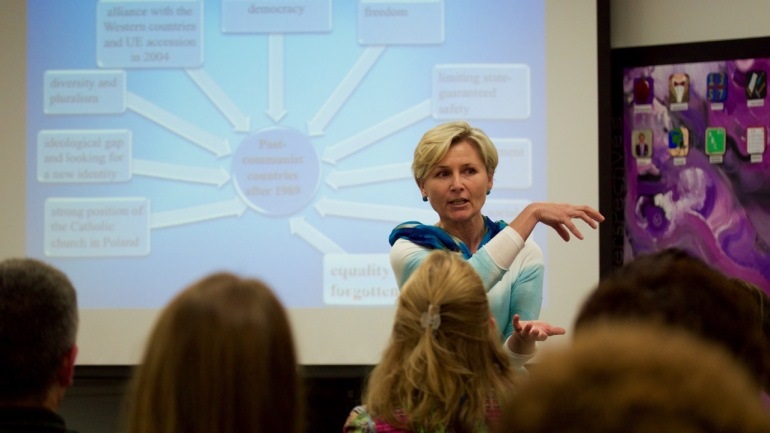
Plenipotentiary for Equal Treatment
Dr. Marzanna Pogorzelska has been nominated for the position of the Rector’s Plenipotentiary for Equal Treatment Dear Students, From now and on, the University of Opole is among the Polish universities, having the position of Plenipotentiary for Equal Treatment. If...
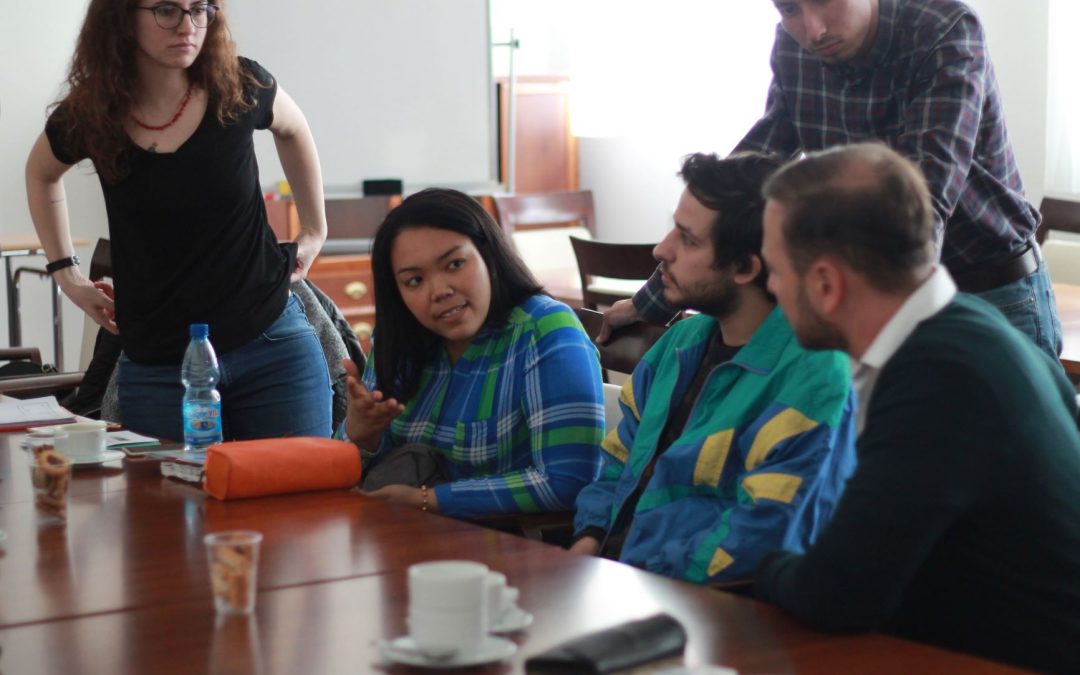
The 2nd Central European International Week
Guests from all over the world visited the Univeristy Last Monday, for the second time in a row, the University of Opole witnessed the official opening of the Central European International Week, that has traditionally become the means to make our colleagues...
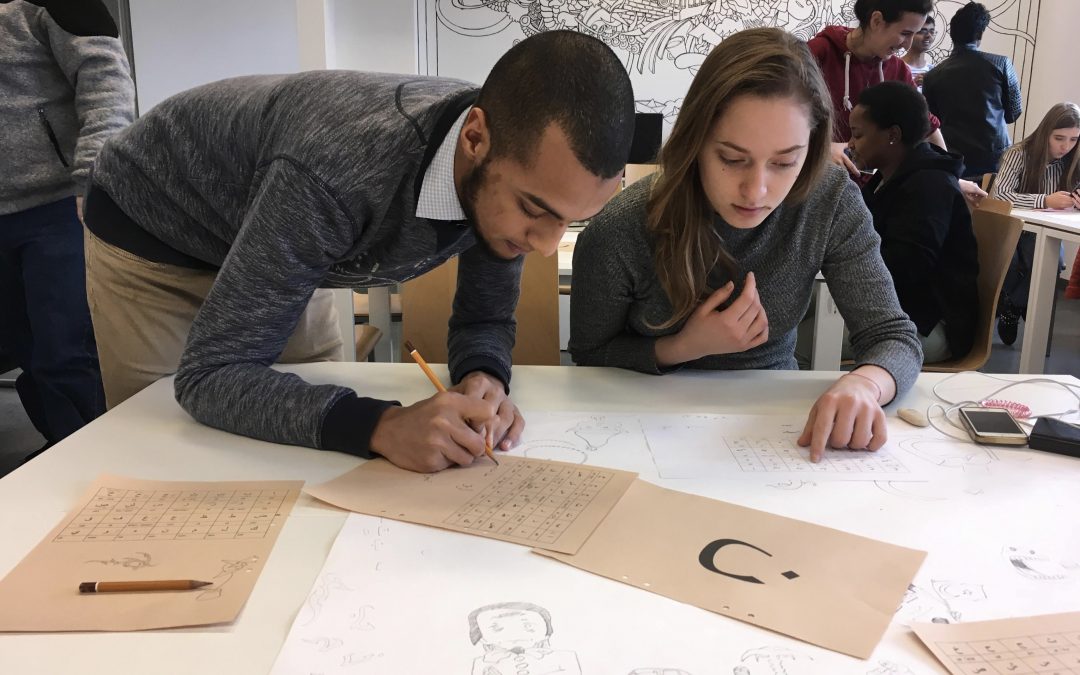
UO students at Universities of Germany, Luxembourg and France
Intercultural typography An international group of students from the University of Opole is working on intercultural typography. They conduct interviews with users of different alphabets, research visits (language landscapes of Leipzig, typography of the...
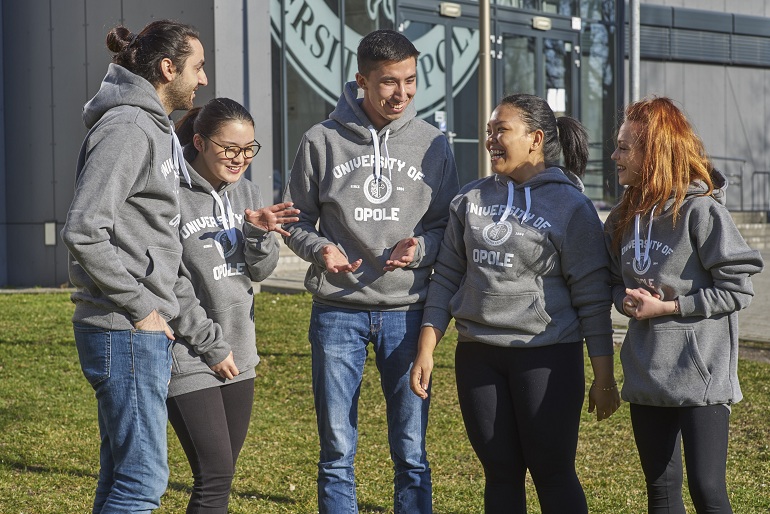
UO Hoodies
UO Hoodies are back!On the occasion of the 25th anniversary of the Univeristy of Opole, thanks to our colleagues from the Academic Career Centre, our students have an opportunity to yet again buy the Univeristy Hoodies.About The new hoodies are a result of the...
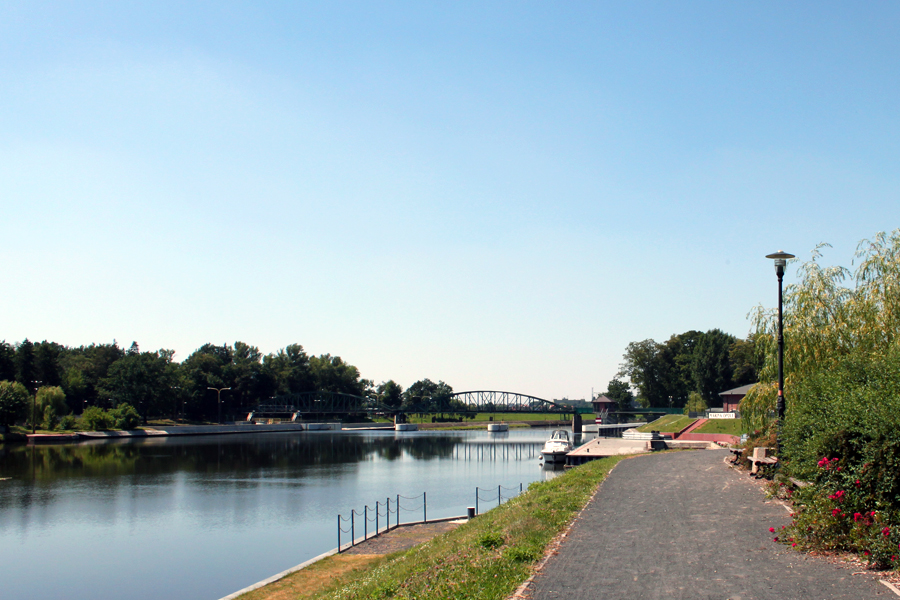
Daylight Saving Time
Dear Students, Warmer days are fast approaching. After the cold Winter season we all anxiuosuly awaited Spring. Luckily, it is finally time to bid our farewells to the cold weather and begin preparations for the warmer seasons. Please remember that on March 31st,...
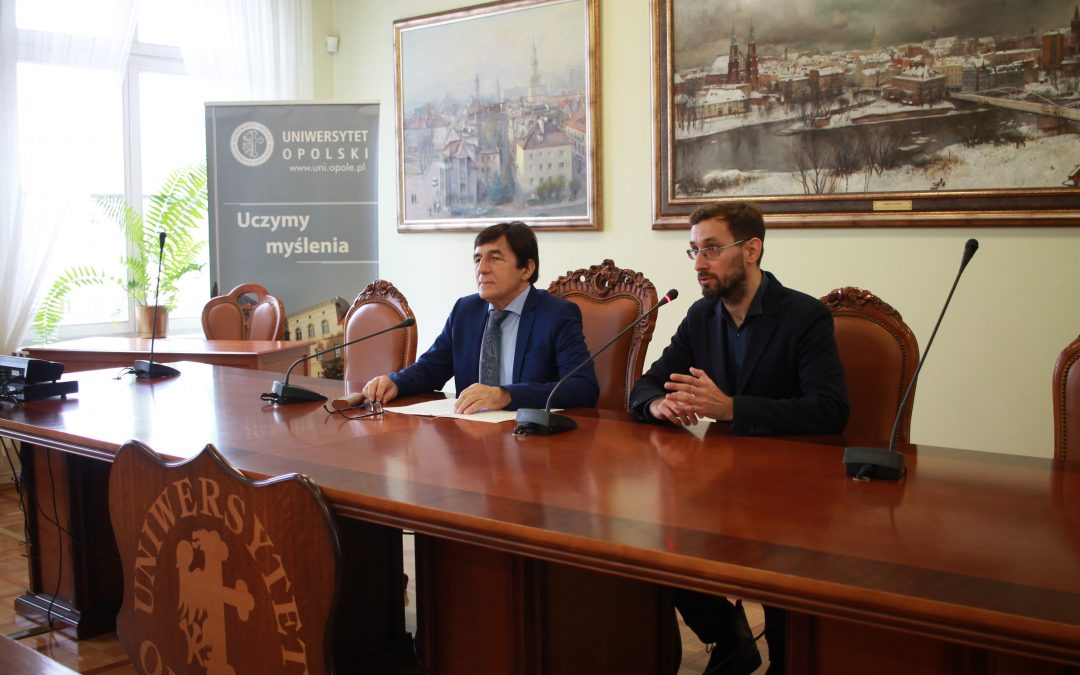
International Conference – UO International Week
International Conference - Central European International Week at UO This year, for the second time, our University will host the Central European International Week. For one week, our colleagues from partner universities will join the UO professors and...
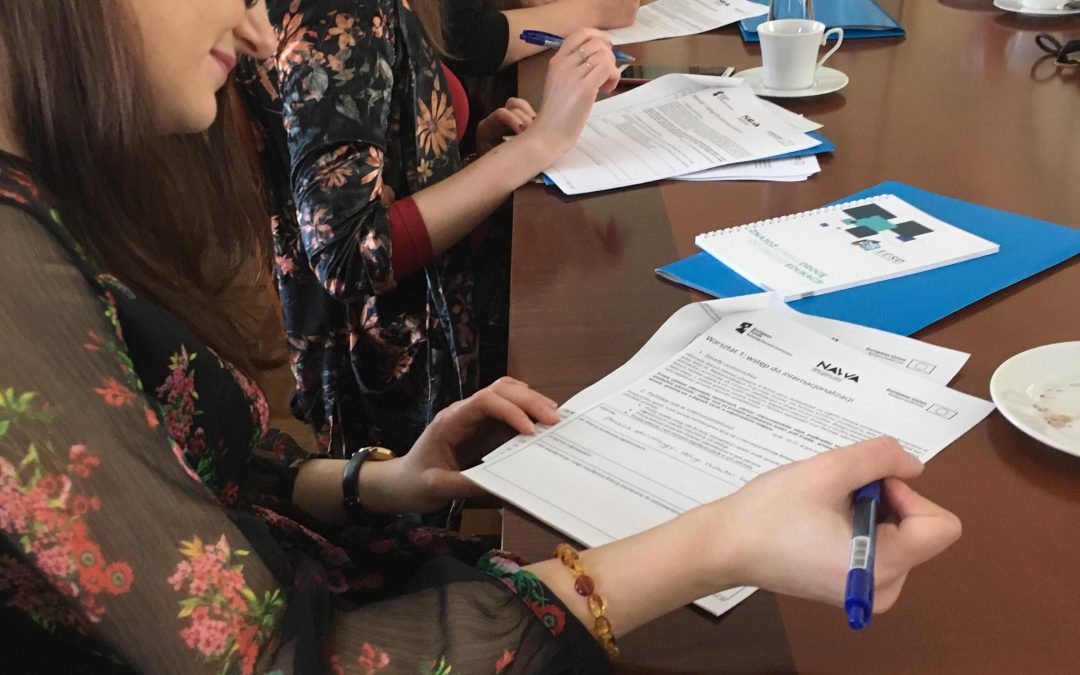
Employee training- Welcome to UO
The programme is co-financed by the European Social Fund in the framework of Knowledge Education Development Operational Programme, non-competition project Increasing competencies of academic staff and institutions’ potential to receive people from abroad – Welcome...
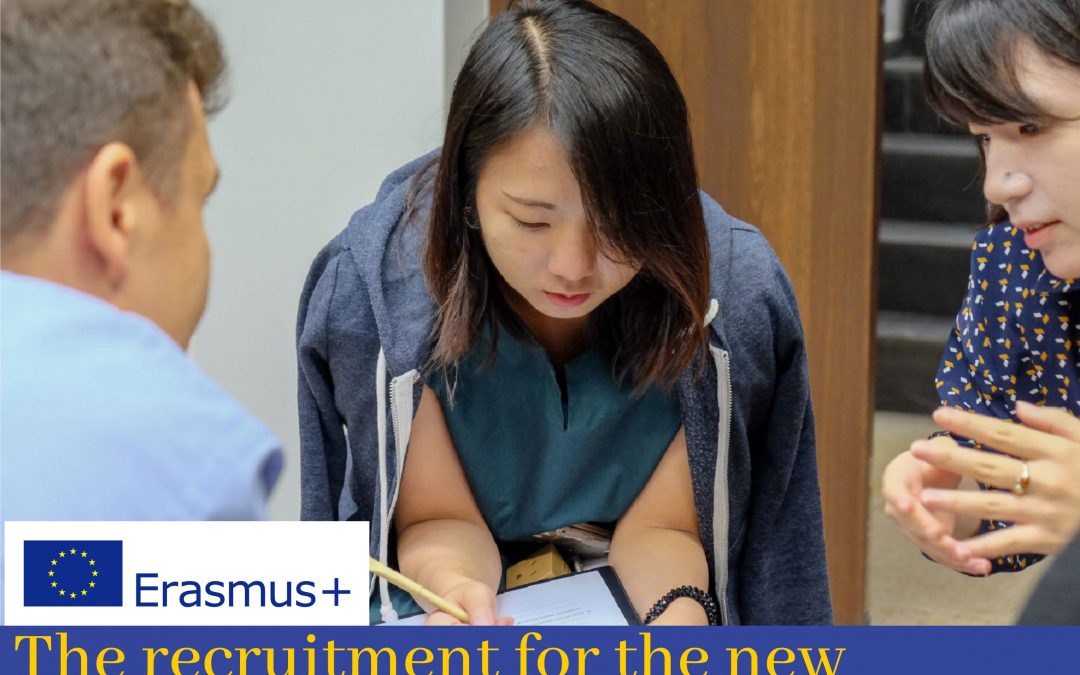
The recruitment for new academic year 2019/2020 starts now
Dear Students, The new recruitment for mobilities for studies and traineeships abroad during the academic year 2019/2020 starts now!* The recruitment will last from 04.03.2019 to 22.03.2019. Studies under the Erasmus+ Programme are a great opportunity to gain...
